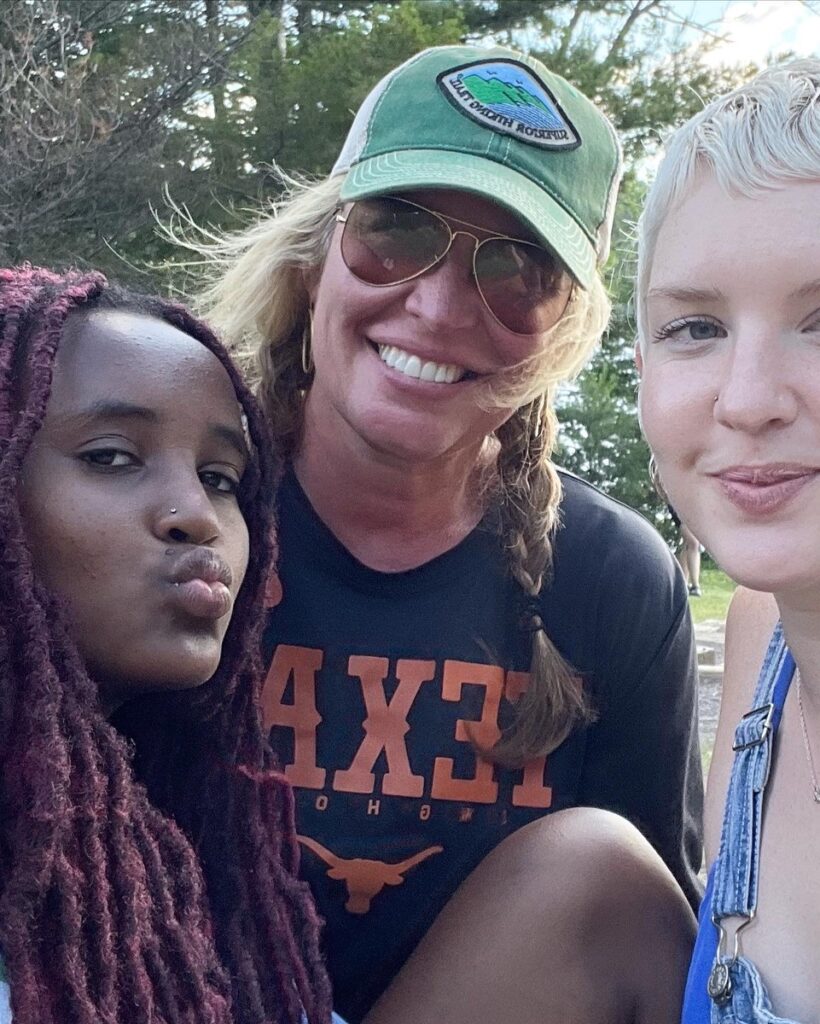 I have walked five children into kindergarten and filmed those same five children walking across a high school graduation stage.
I have walked five children into kindergarten and filmed those same five children walking across a high school graduation stage.
The oldest one is married with a mortgage — and their own son on the way. The youngest recently earned her diploma.
In the life cycle of parenting, getting them to young adulthood closes a loop (IT OPENS A WHOLE ‘NOTHER LOOP THAT NO ONE TOLD US ABOUT but that is another essay).
But let’s talk about those pre-graduation years. Here’s one thing I noticed: If you leave kids to their own devices, they will spend $30 faster than you can say “drive-thru Taco Bell.” I mean, poof—gone. All that hard-earned allowance spent on slime, screen time, snacks, whoever knows what else — and when you ask where it all went, you get that classic shrug like, “I don’t know, Mom, it just disappeared.”
Listen, I get it. Money feels like magic when you’re young. It comes from mysterious places like birthday cards, tooth fairy visits, and your mom’s purse (which is obviously bottomless, right?). But as adults, we know better: money doesn’t grow on trees, and one of the kindest things we can do for our kids and teens is to teach them exactly that.
April is Financial Literacy Month, and while that might not sound as fun as Easter baskets or spring break road trips, it’s a golden opportunity. It’s our chance to help our kids get curious — and confident — about money. Because if there’s one thing I know for sure, it’s that confidence follows knowledge. And I want to raise kids who aren’t just kind and nice, but savvy.
 Start Early (Like… “Piggy Bank” Early)
Start Early (Like… “Piggy Bank” Early)
Financial literacy doesn’t start with budgets and spreadsheets. It begins with the basics: “This is how we earn money. This is how we save it. And this is how we decide what really matters when we spend it.”
We want to raise kids who are financially aware, not financially anxious. Yes, and amen. We don’t need to turn every trip to the store into a TED Talk about fiscal responsibility (though there was a time I tried), but we can bring our kids into real-life conversations about spending, saving, giving, and planning.
And look, it can be fun! Start with their own little “job”— maybe it’s helping with dishes, walking the dog, or setting the table. Give them a few bucks and then let them practice decision-making. Teach them to divide it up: some to spend, some to save, and some to give. Boom — budgeting 101, kid edition.
Teens + Money: More Than Just a Summer Job
As our kids grow up, so do their financial responsibilities. When they become teens, the financial stakes might feel higher. Maybe they’re working part-time, saving for their first car, eyeing college costs, and trying to figure out how debit cards work (and that overdrafting is not free money, Lord help us).
This is also where long-term thinking starts to take root. It’s where you can start introducing bigger-picture concepts—like investing, interest, and yes… even life insurance.
I know, I know. Life insurance isn’t exactly the hot topic at the dinner table. But here’s the thing: it’s not just about being “grown-up.” It’s about being prepared. And that’s a lesson worth planting early. I love that Modern Woodmen says “Life insurance is not for the people who die. It’s for the people who live.”
A simple, child-friendly life insurance policy can be a thoughtful way to begin talking about financial protection—and the idea that we care for our families not just in the moment, but down the line too. It’s not scary; it’s actually deeply loving.
Money Values = Family Values
At the end of the day, teaching our kids about money is really about teaching them about life. What do we value? How do we treat what we’ve been given? How do we share, plan, dream, and take care of each other?
When we talk to our kids about money, we’re not just prepping them for adulthood — we’re inviting them into the kind of life that’s thoughtful, wise, and generous. That’s the kind of legacy I want to leave behind.
You can start now. At the dinner table. During the ride home from school. Heck, you can even take your kid to a financial review. Learn more about that here.
This month, take a minute to talk to your kids about how money works. You don’t have to be a financial expert. Just be honest. Be curious together. Money may not grow on trees, but financial literacy can grow in your home.
Modern Woodmen of America. 1701 1st Ave. Rock Island, IL 61201. Product availability varies by states. Individual representatives may not be licensed to sell all products. Paid endorsement.




